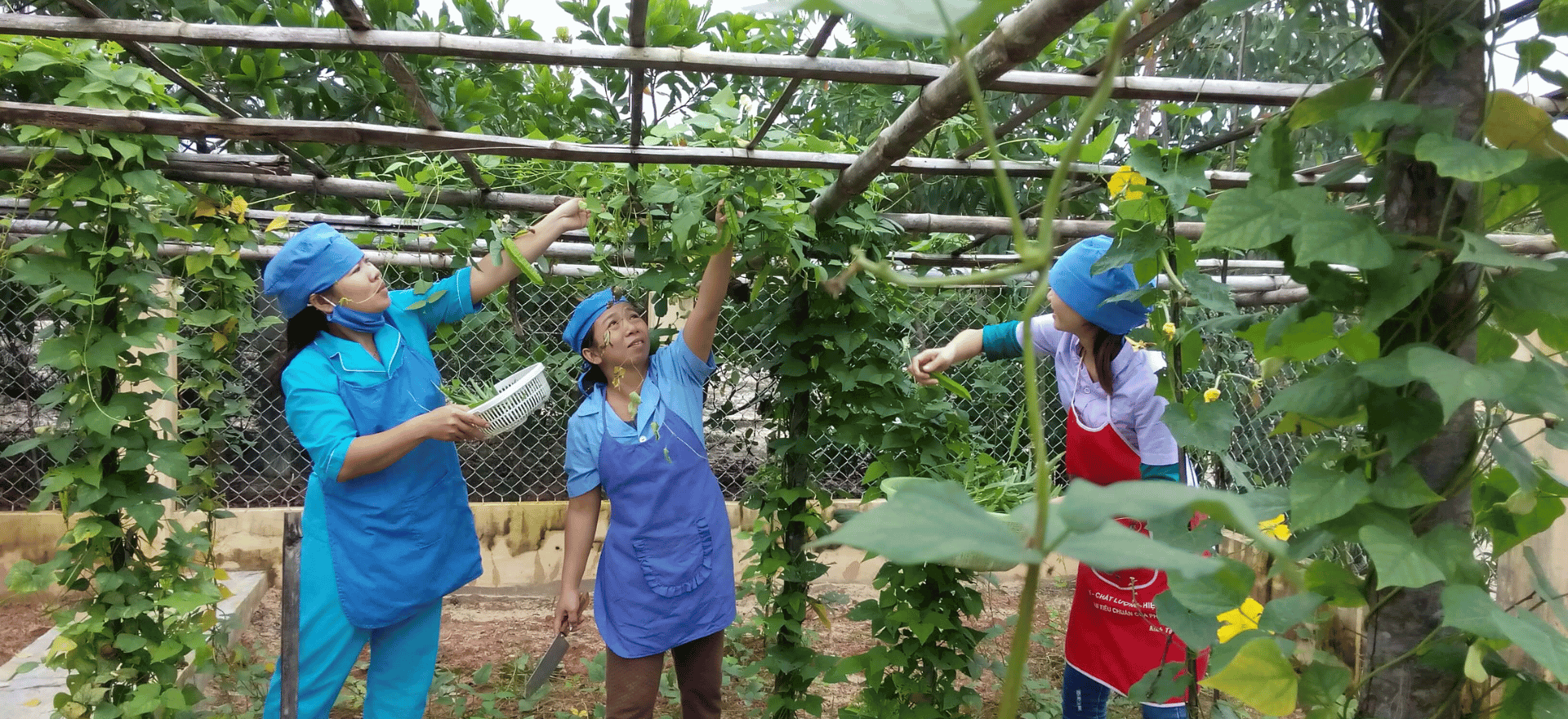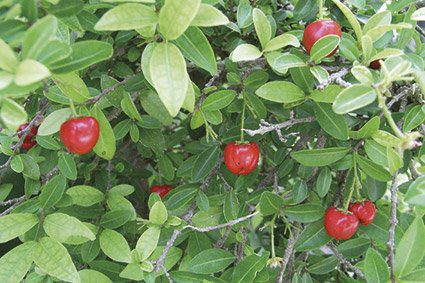
Every minute 5 children under the age of 5 die from malnutrition . . . Every Child Matters . . . Local Plants Suit Local Conditions
A key part of FPS’s success is due to the importance placed on forming long-term, mutually beneficial partnerships. With this focus FPS has the following signed agreements:
- Letter of Support – Bioversity International
- Letter of Intent with the School and Land and Food (SLaF) at UTAS (University of Tasmania).
- Letter of Support from ACIAR – Australian Centre for International Agricultural Research.
- Priscilla Hall Memorial Foundation – Indonesia
- Teacher in a Box
- Southern Africa Development Outreach – DR Congo
- ECHO Asia Northern Impact Centre – Northern Thailand
- Rotary Club of Los Chillos Milenio – Ecuador
- Partners in Community Transformation – Kenya
- Korean Friendship Network – DPRK
- Rotary Club of Toliara – Madagascar
- Dr Tassawar Hussain Malik and Rahmatullah Qureshi – Pakistan
- Ganglha – China (Qinghai Province)
- Smiling Faces Uganda – Uganda
- Jean Nepomuscene Sibomana representing Golden Zebra Enterprise – Rwanda
- Women Centre of Excellence – Tanzania
- AOG World Relief Vietnam – Vietnam
- SUP Wilderness Adventures – Vanuatu
- Educate a Child International – Uganda
- Children of Burma – Burma
- Uplift A Child International – Uganda
- AYPAD International – Kenya
- DPEROSC – Nepal
- AYPAD International – Sierra Leone
- Abedin International Inc., Dhaka, – Bangladesh
- Victorite General Dealers – Zambia
- Sustainable Cambodia – Cambodia
Bioversity International’s project titled Biodiversity for Food and Nutrition (B4FN) is described as ‘finding ways to mainstream agricultural biodiversity into national and global policies and programmes tackling nutrition and food security. B4FN is working to address growing concerns over the rapid disappearance of traditional crops and wild species by promoting and lobbying for the use of nutritionally promising species, as well as by documenting the knowledge associated with the preparation, storage and cultural use of these foods.’ Using an FPS program in Vietnam – with partner AOG World Relief Vietnam, a case study report was written:
Vietnam
After a pilot programme in 2012, with AOG World Relief Vietnam, where children were taught the nutritional value of herbs and vegetables, school gardens have been established in the provinces of Dai Hung and Tam Phu. Significant achievements have occurred including:
At the school gardens the teachers educate the students (using the FPS field guide) on the nutritional value of various plants and showing them how to plant and look after them.
The students at the schools have also been enjoying the benefits of the plants they have grown as they are provided with a nutritious lunch at school.
- Initially the children only tended the plants at school, however, now they are provided with seeds to take home and plant there, so the families are starting to grow more of their own plants and vegetables.
- The skills the children learn now will benefit them should they become farmers as many of their family have.
- Schools are saving money each month from not having to buy food, which means this money can be redirected to other necessities for the school.
- There has been an increase in enrolments as parents feel more confident in the school’s ability to provide for their children nutritionally and give them safe clean meals. This in turns frees up the parents to increase their household income they have more time to work now that their children are being cared for.
- Eight Food Plant Solutions school gardens have been established, with three more immediately planned.
- Our program partner has said “Food Plant Solutions is a useful program because it is purposed to empower children in their context to harness local food plant resources to feed themselves and their families in response to the emergency facing the developing world in terms of the rise of malnutrition amongst the human population, particularly children.” And “We have received reports from some communities where the success of the garden has reached the ears of teachers at different schools and also different communities who want to replicate what they have heard about. These teachers have travelled to the schools where the gardens have been established to observe, take photos of the garden and ask questions so they can then replicate. This is a great outcome!”
- Malnutrition has significantly reduced – one school has seen a reduction of 80%, another 95% – IN ONE YEAR.
“Food Plant Solutions is a useful program because it is purposed to empower children in their context to harness local food plant resources to feed themselves and their families in response to the emergency facing the developing world in terms of the rise of malnutrition amongst the human population, particularly children.”
Uganda
FAO Team Leader – Chikelu Mba has said of our Ugandan field guides “This is a worthy resource that should be replicated for every country and people struggling to feed and nourish the populace adequately – even in the midst of plenty.”
Indonesia
A program is underway in Indonesia with our partner – the Priscilla Hall Memorial Foundation. Full details on this program can be found at https://foodplantsolutions.org/wp-content/uploads/2014/07/FPS-in-Indonesia-151215.pdf
“Congratulations on the excellent and useful work that is Food Plant Solutions. As we work closely with the community in growing vegetables and healthy cooking methods/nutrition, we truly value the combination of information about growing requirements and nutritional values in a practical way.”
“Well done for this wonderful book. This is so important to those of us who want to improve the intake of nutritious food for our local villagers, especially here in the remote areas of north Bali.”
Timor Leste
Sisters at the Mary McKillop Mission who were running a number of health clinics in the outer district embraced the FPS program and FPS publication Training occurred and is now being delivered through their health clinics.
“This is capacity building at its best.”
Ecuador
“In closing, I just want to say “BRAVO” for your work in producing materials such as this guide. To me, it’s a perfect example of what Rotary is all about. Well done!”
Kenya
“I believe the field guide has been very useful in helping plan some sustainability livelihood activities, helping community members diversify their crops and income sources and have home gardens for improved nutrition.”
“The Food Plant Solution guide has been very useful in supporting our sustainable program. The organization of the guide is well structured and easy to understand. Most specifically it has:
Helped in creation of awareness to our farmers on the values indigenous foods that have more nutritive values, drought tolerant, higher income.
Provided information on sustainable diet where mix farming applies. In this regard, farmers have been trained to have varieties of crops so that they can access food throughout and reduce the risks of crop failures in case of drought or pests & diseases attack.
Helped in soil and water conservation and farmers have been encouraged to recycle farm wastes as form of soil and water conservation hence buffer soil fertility resulting to increase production. At the same time has encouraged farmers to mulch their crop during dry spell to preserve water and later form part of soil fertility.
Farmers have established kitchen gardens to address food security for improved nutrition, use local seeds especially indigenous vegetable seeds for future generation and also to reduce cost of production.”
Solomon Islands
A program was developed in the Solomon Islands, with guides and posters created and shared with potential stakeholder organisations, including government ministries. As renowned local leader, the late Joini Tatua said:
“These publications will give the people of my country access to very valuable information they have never had access to before. I believe this work is very, very important and I strongly support it.”
Many thousands of the publications have been distributed and resulted in a considerable interest and awareness in growing traditional foods.
Rwanda
Isabel Schools subsequently also utilised the FPS publication Using the materials provided by FPS in the schools allows better understanding of the food benefits of each crop and letting the children identify and distinguish between crops through both excellent visual pictures and quality text.
“Recently we formed a partnership with Food Plant Solutions, who will provide us with information on what plants to grow that are suited to our environment, require minimal inputs and most importantly are very high in nutrients. This will assist us in achieving food security and reducing malnutrition. Our partnership with FPS will help to enable us to achieve our vision.”
Food Plant Solutions Rotary Action Group
PO Box 690, Devonport TAS 7310, Australia
EMAIL: info@foodplantsolutions.org

